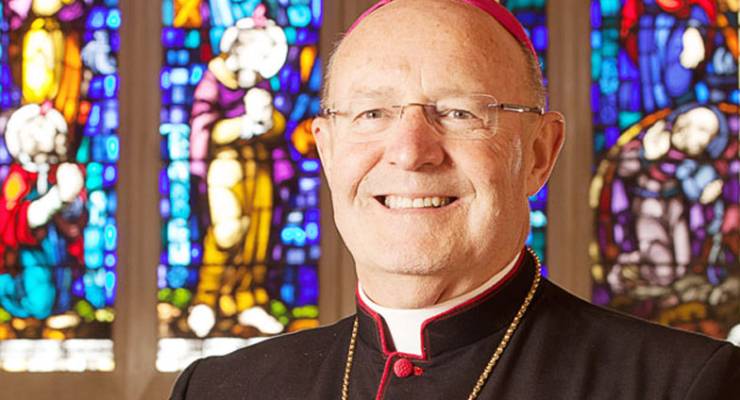
The Australian Christian Lobby has lost one of its few arguments against legalising same-sex marriage, with an anti-discrimination case against the Archbishop of Tasmania Julian Porteous dropped.
Transgender former Greens candidate in Tasmania Martine Delaney took Porteous to the Tasmanian Anti-Discrimination Tribunal last year over an anti-marriage equality propaganda booklet issued in Catholic schools entitled “Don’t Mess with Marriage”.
The document claims among other things that allowing same-sex couples to wed would be “gravely unjust” to children. This is despite the fact that many heterosexual couples have children without being married, and many same-sex couples already have children without being allowed to marry.
This led to fringe groups such as the Australian Christian Lobby claiming that the case was “a chilling brake of free speech”, despite no finding being made against Porteous. The case entered into conciliation last year, but Delaney ended up dropping the case yesterday. She told the ABC that she decided to drop the case after she twice attempted to offer an edited version of the book that made it clear the claims made in it about marriage were the church’s view, rather than being based in fact.
The decision to drop the case puts a dent in the current line of argument from the ACL that people against same-sex marriage are being silenced from the debate ahead of a potential plebiscite under a Coalition government, or when same-sex marriage is legislated within 100 days of Labor being elected.
Nevertheless, the lobby’s managing director, Lyle Shelton, yesterday said state-based human rights commissions were being “weaponised by advocates” and called again for the suspension of anti-discrimination law during the plebiscite debate to allow the ACL and other groups opposed to say all the things they want about gay people, if the Coalition wins the election on July 2.
The government isn’t giving in on this ground, however. Attorney-General George Brandis yesterday confirmed in Senate estimates that the government had no intention of suspending anti-discrimination law.
“There have been some who have proposed that anti-discrimination laws should be suspended. There are obviously practical problems with that. One among them, the obvious one that most anti-discrimination laws are laws of the states rather than the Commonwealth. [It] is not the government’s position. It’s not my intention to.”
In the budget on Tuesday, the government set aside $160 million in contingency funding for the plebiscite to be held after the election if the Coalition wins a second term. Brandis would not say when the plebiscite would be held, except that it would be “progressed swiftly” after the election, with legislation introduced enabling the plebiscite shortly after the election.
Brandis confirmed he had been meeting with key stakeholders on the issue, including the Catholic Church, the Australian Christian Lobby, and Australian Marriage Equality about the potential “yes” and “no” debate, and confirmed Crikey‘s report earlier in the week that the government had yet to determine final costs or whether funding would be allocated to run “yes” and “no” campaigns.








While freedom of expression is a precious right, it may reasonably be doubted that it includes the right of Churches mired in the past to offend against the basic Christian concept that ‘all people are my brothers and sisters’ .
That YOU don’t feel institutions with the temerity to have different stands from yours Joshua should be permitted to express them says a great deal about the prejudices of one Joshua.
If one has an interest in the theory of reincarnation, it is of interest to not that many homosexual couples seemed to have formed those relationships in past lives in monasteries and nunneries. After a few lifetimes in single sex institutions it is quite hard to relate to the other gender.
If so the Roman church is repudiating its own.
From the organisation that brought you Blasphemy laws.
Also, following on from the last comment, spiders can control your brain.